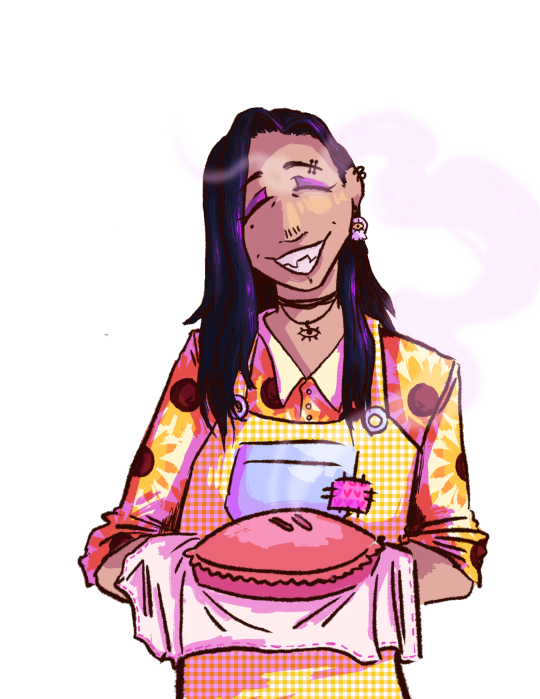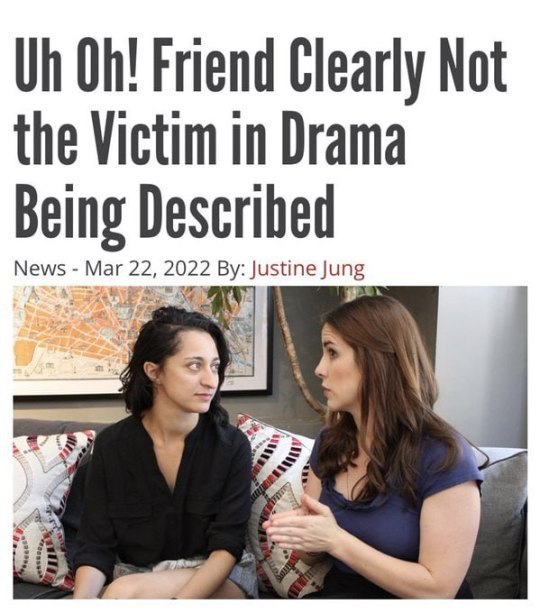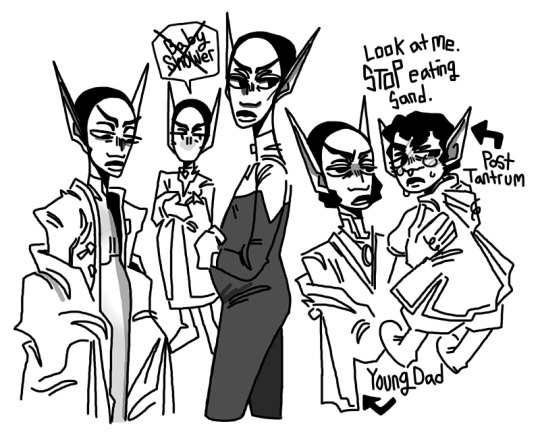#maternity home
Text
#gynecologist in navi mumbai#maternity home#maternity hospital#infertility hospital in kopar khairane#gynecologist#gynecologist in koparkhairane#infertility center in koparkhairane#mahavir hospital#maternity hospital in navi mumbai
0 notes
Text
'Whatever Happens I'll Still Look Good' Mother Style, Maternity Humor
T-shirt available on Teepublic!

#redbubble#findyourthing#helengie#classic tshirt#maternity#maternity clothes#maternity fashion#maternity home#maternity style#maternity wear#good looking#Good look#funny tshirts#natural woman#confident women#beatiful woman#strong women#strong woman#baby shower#future mother#mother to be#mother nature#mother#cool mum#mum
0 notes
Text
Dr. Vandana Bharadia - Gynaecologist in Jagatpura, Jaipur

Dr. Vandana Bharadia is a renowned gynecologist based in Jaipur, Rajasthan. She is currently practicing at the Maheshwari Chikitsalaya Maternity Home & Vaccination Centre in Jagatpura, Jaipur. She completed Medical schooling (MBBS) from SMS Medical College, Jaipur during 1994-1999. Dr. Vandana has dedication for providing exceptional healthcare services to women & to accurately identify and treat various gynecological conditions.
See More : - Gynaecologist in Jagatpura, Jaipur
#Doctor#Gynaecologist#Obstetrician#Women Health Specialist#Maternal Care#High Risk Pregnancy#Infertility Treatment#PCOD/PCOS#Maternity Home#Maheshwari Chikitsalaya#Jagatpura#Jaipur
1 note
·
View note
Text
https://harshhospital.in/what-is-painless-delivery-and-how-does-it-work/
Learn about painless delivery and epidural and how it works. Dr Purva Patel is an expert in painless delivery and will make sure it's a smooth journey for you.
0 notes
Text
Doctors and nurses who are not willing to listen to their patients should be replaced
BY VICTORIA SMITH
The third time I went into labour, I was determined to avoid getting told off. With both of my previous births, I had somehow managed to get things wrong. My errors the first time: going to hospital too early, then, when I returned three hours later, “leaving it so late”. The second time: ignoring assurances that I didn’t need to come in yet, then giving birth in the car park — an event I later discovered was being used in antenatal classes as an example of women “not planning ahead”.
“My previous births have been fast,” I said, when I went into labour with my third, “so I’d like to come in now.” I was speaking to the woman at the midwife-led unit that is the only option where I live. (If you need a caesarean section, you have to be transferred to next town.) “Third babies are notoriously difficult,” was her response.
What an odd thing to say to a woman already in labour. The “notoriously” suggested it wasn’t based on any actual evidence, but rather a kind of folk wisdom. It felt as though I was being warned not to tempt fate, not to assume that this baby would just pop out. I saw myself being categorised as one of those arrogant women who presumes to know her own body, only to be taught a harsh yet much-deserved lesson. “Third babies are notoriously difficult” sounded not unlike “third-time mothers shouldn’t get above themselves”.
In fact, I have never been particularly cocky about childbirth. When I was pregnant with my first child, back in the days when the Right-wing press were still obsessed with famous women being “too posh to push”, I wondered if I might be able to get an elective caesarean myself. I did not particularly care about childbirth being a wonderful experience, or about “doing it well”. I didn’t care if the Daily Mail thought I was a joke.
What I cared about was not having a child who would face the same difficulties as my brother, who was starved of oxygen at birth. This has had serious consequences for him, and for the rest of my family. Just how serious is hard to gauge. He was born traumatised; there has never been a before to compare the after with. What there has been instead is the hazy outline of an alternative life, one that runs parallel to the one he has now. It’s a life that began with the problem being identified sooner, with him being delivered quickly, perhaps by emergency caesarean. The difference between this and his actual life comes down to something small: mere moments, mere breaths.
I was born three years after my brother, in a larger hospital, where my mother was induced and monitored carefully. There is something very strange about being the sibling who had the safe birth. It feels as though I stole it. There is a constant sense of guilt, as if my life — my independence, my choices — constitutes a form of gloating. “This is what you could have had.” Everything I do feels like something owed to my brother (do it, because he can’t) but also something taken from him (you shouldn’t have done that, because he should have done it first).
Still, my family were fortunate, insofar as my brother didn’t die. Current reports on the Nottingham maternity scandal reference 1,700 cases, with an estimated 201 mothers and babies who might have survived had they received better care. What strikes me, reading them, is the enormous gulf between the cost of a disastrous birth and the trivial, opportunistic way in which childbirth is so often politicised — with mothers themselves viewed as morally, if not practically, to blame if anything goes wrong.
As a feminist who concerns herself with how the female body is demonised, my interest in debates about birthing choices is more than personal. I have read books railing against the over-medicalisation of childbirth, aligning it with a patriarchal need to appropriate female reproductive power. I have also read books protesting the fetishisation of “natural” birth, suggesting that it infantilises women, that it implies women deserve pain. To be honest, I find both arguments persuasive and dismaying. Both are right about the way in which misogyny and professional arrogance can shift the focus away from meeting the needs of women and babies. I feel a kind of rage that we are told to pick a side.
Representations of the labouring woman are so often negative: the naïve idealist, the “birthzilla“, the birth-plan obsessive, the woman who is “too posh to push”. This latter stereotype has gone hand-in-hand with a veneration of vaginal births, and stigmatisation of caesareans, that has had sometimes disastrous consequences. Midwives at the centre of the Furness General Hospital scandal were reported to have “pursued natural birth ‘at any cost’”, referring to one another as “the musketeers”; at least 11 babies and one mother died. But their approach was sanctioned by their employer: the 2006 NHS document “Pathways to Success: a self-improvement toolkit” explicitly suggested that “maternity units applying best practice to the management of pregnancy, labour and birth will achieve a [caesarean section] rate consistently below 20% and will have aspirations to reduce that rate to 15%”. Proposed benefits to this included “a sense of pride in units”.
Responses to maternity scandals now express horror that such an anti-intervention culture ever arose — responses in the same press that denigrated women such as Victoria Beckham and Kate Winslet for not giving birth vaginally. Instead, newspapers now stoke outrage over “natural” treatments during NHS births, such as burning herbs. Women have been shamed for having caesareans, but they have also been shamed for wanting births with minimum intervention — as though they are selfish and spoilt for seeking control over such an extreme situation.
In his memoir This Is Going To Hurt, former doctor Adam Kay writes disparagingly of women who arrive at the delivery suite with birth plans:
“‘Having a birth plan’ always strikes me as akin to having a ‘what I want the weather to be’ plan or a ‘winning the lottery’ plan. Two centuries of obstetricians have found no way of predicting the course of a labour, but a certain denomination of floaty-dressed mother seems to think she can manage it easily.”
Wanting to have some control over your experience of labour — which will hurt you and could kill you or your baby — is not akin to some messianic aspiration to control the weather. And in his mockery of the woman who wants whale song and aromatherapy oils, ironically, Kay deploys the same silencing techniques that might intimidate a woman out of seeking the very interventions he so prizes. What he and others do not seem to grasp is that their arrogance is a problem, regardless of which course of action they champion. It makes women feel they can’t speak, for fear of inviting hostility at their most vulnerable moments. It’s true that none of us knows our body well enough to know how we will give birth. But, looking back, I find it utterly insane, not least given my own family history, that one of my biggest worries during labour was “please don’t let anyone get cross with me”. Then again, I don’t think that fear is unrelated to the desire to remain safe.
Birth is not a joke. It is not a place for professional dick-swinging or political one-upmanship. I cannot describe — and, as I am not my mother, cannot fully understand — the shame of feeling that you “let down” your child before they drew their first breath, that they will forever suffer because of it. You watch an entire life unfolding and that feeling is there, every single day. This is the fear of the women in labour who are characterised as either idiots mesmerised by fantasy homebirths or cold-hearted posh ladies who can’t take the pain. If things go wrong, they are the ones who will bear the consequences, reflecting every day on what might have been, if they’d only done more.
When people discuss their siblings, my mind does wander to the one I don’t have, the one who was born safely. Perhaps he would have a job he loved, or one he hated, but in any case a job. Perhaps he would have a partner. Perhaps he would have children, and I would be their aunt. Perhaps we wouldn’t get on, wouldn’t even speak, but he’d have a life of his own. I know he thinks about this too. I wonder if the professionals who presided over his birth have thought about him since.
My third labour was not, by the way, “notoriously difficult”. My third son arrived into the world safe and well. No one can say why him or me, and not my brother. Mothers may long for control over birth, for which we are mocked; but we do not have it, for which we are blamed. Politics still takes precedence over our needs, and the needs of our babies.
#Traumatic births#Doctors not listening to women#There's no such thing as a birthzilla#Women aren't too posh to push#Doctors are so posh they schedule cesareans to accommodate their schedules not the mothers#Furness General Hospital Scandal#This is going to hurt#Keep Adam Kay away from women#Women wanting a say in their births are not acting like they want to control the weather#Nottingham maternity scandal#If the baby suffers during a traumatic birth it's the mother who will providing the care after they come home from the hospital
549 notes
·
View notes
Text

I dont feel like doing the background. I refuse. Hes baking..... 🥹 hes baking and hes happy and hes ALIVE....
Version with bg sketch under the cut ✂️👇


#the magnus protocol#tmp#Gerry Keay#gerry robinson#<- TO ME. again eye dont think that their necessarily actually grandson grandparent eye think its a label of convenience BUT#they are family. TO ME.#Gerry Keay's mother was deeply fucked up and evil and eyeHATE her and Gertrude Robinson is NOT his mother but she is an older female figure#in his life he can rely on to some extent .Shes not maternal at all like at all but sometimes he looks at her and wishes that she cared for#him the way nobody else had ever cared for him. But he doesnt voice it because hes like in his 30s at this point. And then he dies and she#makes him a ghost and it HURTS. It hurts and it sucks and he wants to go home. He wants his mother#but not his actual mother#the#hypothetical mother who is not his mother whom actually loved him. But he refused to cry out for her with his final breath.#Gerry Keay died silent.#ANDMD THEN GERTRUDE ROBINSON CALLED HIM HER GRANDSON#EYE!! AM NOT!!! *OKAY!!!* GWAAAAD GWAD GWAD GWAD. GOOD GOD. ANNNYWAYS.#tmagp#tmagp spoilers#Gerry tmp#my unfortunate art#:3#His hair is dyed WELL in this timeline ♡ Beclaws he is LOVED ♡
57 notes
·
View notes
Text
Soap: We need you to translate this document that’s in Spanish
Sweetie: I can’t read this
Soap: ???? You speak Spanish with your mom on the phone all the time
Sweetie: First of all, that’s my grandma. Second of all, I am HORRIBLE at speaking Spanish and have no idea how to read or write it.
Soap: Are you fucking serious?
#Info dumping about Sweetie in the tags cause I can#His maternal great grandparents are from Puerto Rico#And immigrated to the U.S. when his grandmother was a baby#They made home in Texas specifically#Both of his parents were also born in Texas but immigrated to the UK shortly before his mother became pregnant with him#Which is why he speaks differently than a usual person from the UK#since both of his parents since still had pretty heavy accents in his developmental years and he was homeschooled for a long time#Lucas Sweetie Baker#call of duty#cod#john mactavish#john soap mactavish#quotes by ghost
92 notes
·
View notes
Text

Learning about the Yunmeng Shuangjie and the Nieyao drama through Wei Wuxian's and Nie Mingjue's points of view.
#'AITA for avoiding my brother like the plague after being back from the dead after learning he's been looking for me this whole time#And denying him an explanation about how & why I accidentally killed our BIL & started a massacre that resulted in our sister's death#And orphaned our nephew. And talking back to him and telling him off instead of even looking slightly apologetic#when he berates me for telling our nephew whom I accidentally orphaned he lacks maternal education?#And then without even saying so much as a hi to my brother when entering his home bringing a stranger#(that I've been spending all my time with instead of going home and giving an explanation to the brother that has suffered so much bc of me#Bc it was the easier thing to do)#To his ancestral shrine and then teaming up with my boyfriend to beat him up in his own ancestral shrine when he gets upset?#And then telling him that all I did for him (& kept from him) was bc I owed his family and then leaving him behind bleeding#metaphorically & literally (both bc of me) and not even asking him how he is before running to fuck in the bushes with my boyfriend?#*sigh* I thought Jiang Cheng would always be on my side and Lan Wangji opposite us.'#'AITA for making numerous attempts on the life of my marginalized sworn brother and ex-subordinate who has risked his life saving mine#& kicking him down the stairs & offending his mother & going to kill him again#after I told him why he won't just kill himself for the betterment of the world after he refused#To risk his life & safety doing something he had no authority to do after he tried to explain his situation to me?'#mdzs#cql#the untamed#mo dao zu shi#chen qing ling#the grandmaster of demonic cultivation#nie mingjue#jin guangyao#wei wuxian#wei ying#jiang cheng#yunmeng shuangjie#jiang wanyin#yunmeng bros#twin heroes of yunmeng
25 notes
·
View notes
Text

Mpreg Attack
#mpreg#Wacky VOY shenanigans happened & Neelix keeps trying to throw him a baby shower#I just know his maternity robes would be extra#Neelix: Mr. Vulcan you're glowing!!!! / Tuvok: -so sick he can't open his eyes- .............................#B'Elanna tries to help him and he starts with a 'I've had four kids I think I know better than you what to-' thing so she's like 'Fine.'#<- He has to go back to her for help eventually v_v#unclear if he's trans or not in these images. Is it a Vulcan thing? Is he trans? Was he zapped by a ray? Did an alien do this? Who knows <3#All we know for sure is that Sek is eating sand. Right now. Sek PLEASE stop eating sand I DON'T understand why you keep doing it.#PLEASE elucidate the matter. 'Want eat sand!!!' No. NO eating sand. Sek. Listen. Sek if you don't stop we're going home RIGHT now. [pause]#Fine. We are going home. 'NOOO!!!!' Yes.#st voyager#st voyager fanart#Tuvok#Tuvok is the only character I'm interested in seeing pregnant#and buddy? You can take that as you will#bea art tag#bc this is a masterpiece
37 notes
·
View notes
Text
youtube
#maternity hospital#maternity home#gynecologist in navi mumbai#mahavir hospital#infertility hospital in kopar khairane#Youtube
0 notes
Text
for a while now, I've really been doubting my career choices with nursing. I know a lot of it is burn out and depression, and being so overwhelmed between work, school, and clinical, that I didn't have time to breathe. I was in the hospital/on campus for 60 hours a week last semester, and that's not counting the time I had to study outside of that. It was awful. I quit my job because of it, I was almost involuntarily committed because of it.
But the scariest part for me has been how much I've hated clinical. It makes me miserable. And that's terrifying, because once I graduate? That's what I'm going to be doing for the rest of my life. So if I already hate it now, what does that mean for my future?
Sometimes, though... Sometimes I'll have a clinical that is just so good, it reminds me of why I'm doing this. Why I'm putting myself through the pain and suffering of becoming a nurse, which is honestly one of the hardest careers a person can have. It's mentally, physically, and emotionally exhausting. It destroys your body and your mental health. Most of the time it's thankless. It doesn't pay nearly enough for what we go through.
Despite all of the reasons there are not to become a nurse, there are some patients that will remind you why it's all worth it anyway.
Last week, I had a crotchety old bitch of a patient. She had been in the hospital for 10 days, was refusing all of her treatments, screamed at anyone that came in her room, and demanded dilaudid around the clock, despite having no injuries to justify it. Everyone hated her. Her own nurses went in her room as little as possible; I think in the entire 12 hours I was there, her nurse spent maybe a total of 20 minutes in her room. I was in there for hours. A couple minutes at a time in the beginning just so she could warm up to me. Then I spent 2 straight hours at her bedside just talking to her. Letting her tell me her life story. Which was tragic, of course, and no wonder she was so run down and bitter and wanted to get high off narcotics. She was miserable, lonely, and in chronic pain from a body that was deteriorating around her.
So I spent as much time with her as possible. Sure enough, she didn't ask me for any pain medications a single time, once she realized she could trust I was going to look after her. I Explained her medications and her treatments, and the reasoning behind them. I offered to reach out to out chaplain when I noticed she was hyper focused on some televangical broadcast. I got her to call her son to come visit her. I got her to agree to take her medications and allow us to take blood sample for her labs, which were days overdue. I got her up and working with physical therapy so she could start walking again.
By the end of the day, that patient loved me. Not a single complaint all day, she wasn't screaming down the halls and cursing everyone's existence. She was still crotchety and mean in that way old hillbillies are, but she wasn't angry. She wasn't lashing out. She was finally being cooperative. All because I took the time to talk to her and offer her company.
Tonight, I had a shift in our mental health unit. There was a patient who I noticed was very withdrawn and avoiding everyone, mostly just standing in a corner at the end of the hall, by a window. I went down and talked to him. Kind of stilted at first, but slowly he opened up to me. I really only meant to talk for a few minutes, mostly for my own sake, to get used to interacting with mental health patients like this.
Instead, we talked for hours. Nearly 3 hours straight at the start of the day alone, and then more throughout the day. My feet were killing me by the end of it, but it was completely worth it to see the way this poor guy came to life. We talked about everything from social topics like music and movies, to his medications and treatments, and how to manage his depression once he leaves. Something I was able to connect with him about on a personal level in a way his nurse hadn't, because I've been living with depression for a decade, I've been on antidepressants, and I understand. I think that was the point it clicked for him, when he really started reaching out to me, instead of answering when I prompted him. Because humans need connection and understanding.
By the end of the day he was talking freely and smiling nearly non-stop. We'd made plans for him to get back into an old hobby he hadn't touched in years, and he seemed genuinely excited to start it back up again. He was nearly bouncing in place when I went to say goodbye to him at the end of the night, and thanked me for talking to him all day. Even the staff nurses noticed the way his demeanor had completely changed.
Another patient (my actual patient for the night) started the day very combative. To the point she had to be redirected to her room (not locked up, just strongly encouraged to go and cool down). She was screaming at everyone, having some very serious and severe delusions. Same story; I talked to her throughout the day, little bits whenever she was feeling calm. I noticed she had a tattoo from an old semi-niche XBox game I used to play, and we bonded over that. By the end of the shift she loved me. Kept asking me if I'd gotten lunch/dinner, made sure all the other patients on the unit got their snacks, told us all to get some rest once it was curfew for the unit (we had to stay another 2 hours) and said we could use the spare bed in her room if we needed. Which sounds really weird but coming from her was incredibly sweet. Again, total attitude change.
I am very cognizant of the fact that the way I approach my patient care is largely a privilege of still being a student. It's easy for me to stand at a patient's bedside for 2 hours straight and listen to her life story when I have nothing better to do, let alone 3 other patients to take care of. But that nurse didn't talk to her at all. Even when she was in the room, she dismissed everything the patient said. The mental health nurses? Most of their time is spent in the nursing station gossiping and messing on their phones. There's no reason for them not to put in the extra effort of spending time with their patients. And especially there, it can have such an impact.
All of that is to say, I love the relationships I'm able to build with my patients. It's so important for me to be able to connect with people like this, to make them feel seen and cared for and important. No one wants to be treated like an inconvenience, especially not while they're in the hospital, sick and hurt and exhausted and in pain.
Nights like these are why I'm going into this field. I love medicine and I always knew I would end up in the hospital, I've always wanted to be able to save someone's life. But I think now that I've grown up and I'm actually working with these patients, I've come to see not only how rewarding it is to save someone's life, but to nurture that life, too.
#cookie speaks#dont mind me i'm just feeling really sappy#im really proud of what i was able to accomplish with that patient today#he's going home tomorrow and i really hope he's able to do the things we talked about#i truly love being able to help people this way#i want to be the kind of nurse that people remember#i want my patients to feel taken care of and cared for#i dont have a single maternal bone in my body and i never thought i was much of a caretaker#but this is genuinely such a rewarding experience#i dont care how hard nursing is when I get to have days like these#I know it won't be nearly as easy once I start nursing for real#ill have so much more responsibility#but for now I'm going to take advantage of my ability to sit and talk with my patients for hours at a time#i think even if they aren't psychiatric patients#everyone wants to be heard#having someone's undivided attention makes you feel good#especially in this day and age where people are constantly talking over each other and distracted by their phones and never really present#in a conversation#so I always try to give that to others#i love therapeutic communication lol#one of my favorite parts of nursing#anyway
14 notes
·
View notes
Text
there are several good side quests in HW, but there’s this one that gets me in the hinterlands. it’s started with “saro roggo’s average life” which is an aether current quest. simple enough?
WRONG!
it turns into a chain of quests where poor saro struggles to make sense of his existence now that he is no longer just a frog. he has no instructions, thus he doesn’t know what to do. what gives his life meaning? it’s being told what to do and he doesn’t have that, so he’s scared he’s going to be turned back into a normal frog. thus he enlists your help to discover the deepest desire of master matoya and give it to her. through this quest chain you ask a bunch of the brooms what master matoya desires and they spend you off on their own quests. (they are fun lil you only get directions from the journal kind of quests). but eventually one of the brooms tell you of their sister who might know what matoya desires, but she is hidden away and can only be summoned by a special word. another broom tells you that it’s the word of what is dearest to master matoya, and another tells you it doesn’t know what is dearest to matoya, but it is certain that matoya hates y’shtola above all else. she doesn’t talk of her, so of course she must hate her? right?
you go and find the broom anyway and find out this funny hidden away broom holds matoya’s memories of a young Y’shtola. all the joys of her growing up into a fine young woman to the sharp pain of her sudden departure. matoya cannot bear to have the memories close, but she doesn’t wish to forget them. so these memories get tucked away—hidden just close enough.
#ITS SO….im GRABBING THIS SIDE QUEST CHAIN AND SHAKING IT#Y’shtola and matoya’s relationship is complex in MSQ but GOD this is just an added layer#how much matoya was/is a maternal figure to Y’shtola and all the joy and sorrow that comes with it#I love matoya so much as a scholar. as the one who put her foot down to what her country did and how they fled#she’s the only one to stay. she is the keeper#her cave is her home and her grave and she is content in the way cranky old snarky women are#I LOVE HER SO MUCJ AJSJSJD#owen talks#ffxiv#yes I am working on a doc of gold quests that are worth it imo#it will be weird considering I did so many ARR ones when i was first playing and didn’t think to write them down#but it’s pretty comprehensive of HW to ShB thus far#also there will be EW areas missing (mostly thavnair/radz-at-han and a bit of sharlayan)#bc I am a goober and didn’t keep track of them
19 notes
·
View notes
Text
(mgv) house in bed after getting c-section'd, baby on his chest, eyes closed not in serenity but sheer exhaustion, and the second someone comes into his room he's growling before he even scents them. like just some crazy instant maternal instinct that even has chase and thirteen, his emotionally adopted pups, reeling at first. he even growled at wilson because he left the room to go piss (by himself </3) and the sound of the door opening alerted house to An Intruder but wilson just approached him like a wild animal, careful and easy, until house shook himself out of it and mellowed.
#house md#hilson#maternal paternal whatever he can do both#home births are also a thing but house thinks they're STUPID until he has his own pup at a hospital#and like sure the drugs are good but everything else stresses him the FUCK out#“we're doing that hippie crap next time” “........” “what” “....... next time? 🥺”#mgv
16 notes
·
View notes
Text
https://writeonwall.com/5-important-steps-to-take-prior-to-conceiving-a-baby/
💡 Did you know that preparing your body before conceiving can increase your chances of a successful pregnancy and delivery? Our gynecologists have shared their top 5 tips to help you navigate this exciting journey with ease! 🌟 #preconceptionhealth #newchapterbegins
0 notes
